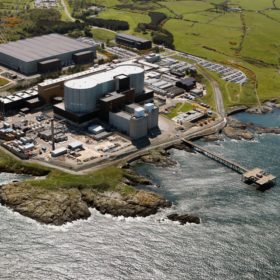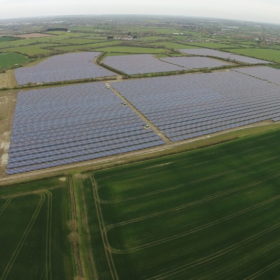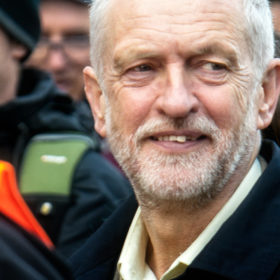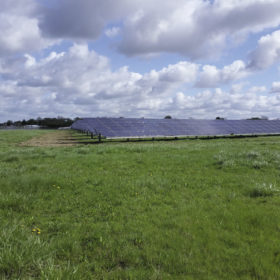Hitachi halts 5.8 GW of UK nuclear plans
With the Japanese conglomerate this week walking away from two new nuclear plants in the United Kingdom, project developer Horizon Nuclear Power has confirmed all activities at both sites will cease. The facilities had struggled to secure funding despite offers from government. Horizon said it will ‘keep lines of communication open’ regarding the future of the sites.
Portuguese government confirms world record solar price of $0.01316/kWh
The Portuguese government has revealed some of the preliminary results of the national solar auction which closed on Tuesday. Antonio Delgado Rigal, chief executive of energy forecasting service Aleasoft, said that the 15-year contracts awarded in the auction were the key to understanding the reason of such a low price. This, combined with the rights for land and grid connection guaranteed by the auction, makes attractive bidding at low prices.
Spain and Italy are European renewables investment hot spots, says CEO, and Mexico really should be too
pv magazine spoke to Mark Jones, chief executive of privately-owned clean energy investment company Susgen about where the newly-launched business is looking to spend the cash pile it has allocated for big, early-stage project pipelines.
Romania re-introduces PPAs to attract investors
The Romanian government has decided to re-introduce directly negotiated Power Purchase Agreements (PPAs) to boost investment in its renewables sector, but only projects commissioned after June 1, 2020 will be eligible.
UK could see 900 MW of solar compete in subsidy round planned next year
Analyst Cornwall Insight said the figure, drawn from its Renewable Pipeline tracker, related only to the proportion of the nation’s 13 GW solar pipeline which had already applied for or secured planning permission.
UK includes solar in new generation capacity auction
The announcement by the Department for Business, Energy and Industrial Strategy of an auction which will include solar next year appears to back prime minister Boris Johnson’s claims to be serious about the nation’s net-zero carbon ambition.
Unrealistic price signals and an explosion of tenders hinder African PV
French thinktank the Institut Montaigne says Africa is absent from the global solar revolution for several reasons including a lack of suitable financing tools, the small size of projects and a systematic recourse to tendering. Removing artificial price signals set by ever more competitive tenders could be a step towards a more mature market, ready for large scale solar tenders.
UK’s Labour announces plans for 22 GW of new solar capacity by 2030
Although PV trails wind and nuclear in terms of its anticipated future footprint, the opposition party’s attempt to outflank left of center rivals on climate change has resulted in one of the world’s most ambitious national roadmaps towards a zero-carbon future.
Recovering interest rates may raise large scale solar electric price 11%
Renewables investment may by hit by rising interest rates despite the falling cost of clean energy tech just as fossil fuels avoid the impact of rising base rates.
Large scale PV moribund in UK but unsubsidized projects offer hope
The latest government figures show utility scale solar had near-zero growth in 12 months. Although excluded from the Contracts for Difference procurement regime, large scale projects may experience a resurgence thanks to unsubsidized schemes linked to bilateral power supply deals, with the Solar Trade Association predicting 400 MW of such projects may be finalized this year.









